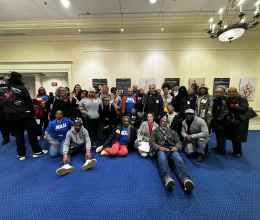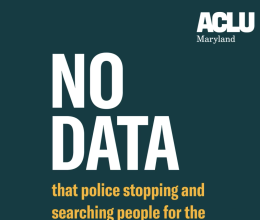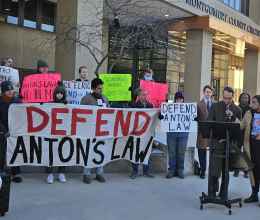
Download ACLU amicus brief in U.S. v Harrison
BALTIMORE, MD - The American Civil Liberties Union (ACLU) and the American Civil Liberties Union of Maryland (ACLU-MD) has filed a friend of the court brief in a federal criminal case challenging the Baltimore Police Department's warrantless and deceptive use of "stingray" cell phone surveillance devices.
Stingray is the trade name for a "cell cite simulator" made by the Harris Corporation. The devices impersonate cell phone towers, prompting all phones within range to connect to the stingray and reveal their electronic serial number, precise location information, and other data. When in use, stingrays sweep up information about innocent people and criminal suspects alike.
"Law enforcement need to know that the Fourth Amendment cannot be cast aside as surveillance technologies advance and become more readily available for police," said David Rocah, Senior Staff Attorney for the ACLU of Maryland. "The privacy of all Marylanders, not just those who are targets of police investigations, is affected when devices like stingrays scoop up the personal information contained in the cell phones of everyone in their range."
In the pending criminal case, U.S. v. Harrison, the Baltimore Police Department employed a stingray to locate a particular phone in one defendant's home. The police did not obtain a warrant to employ this tracking technology, but instead obtained a special court order (known as a "pen register" and "trap and trace") that is issued on less than probable cause, and that is used to direct telecommunications providers to divulge the numbers called and received by a particular phone. In addition, when the Baltimore Police applied for the order, they did not disclose to the judge that they were not actually seeking pen register information, and did not disclose that they would themselves be employing the stingray technology, or that they would be obtaining information about an unknown number of innocent persons' phones.
In the brief, the ACLU argues that the government's use of the stingray and collection of cell site location information about Harrison without a warrant violated the Fourth Amendment. The brief also argues that the police department's material omissions in applying for the court order make the order invalid. Finally, the brief responds to the United States' assertion that a "law enforcement privilege" allows the government to refuse to release any information about the surveillance technology employed in this case.
###




